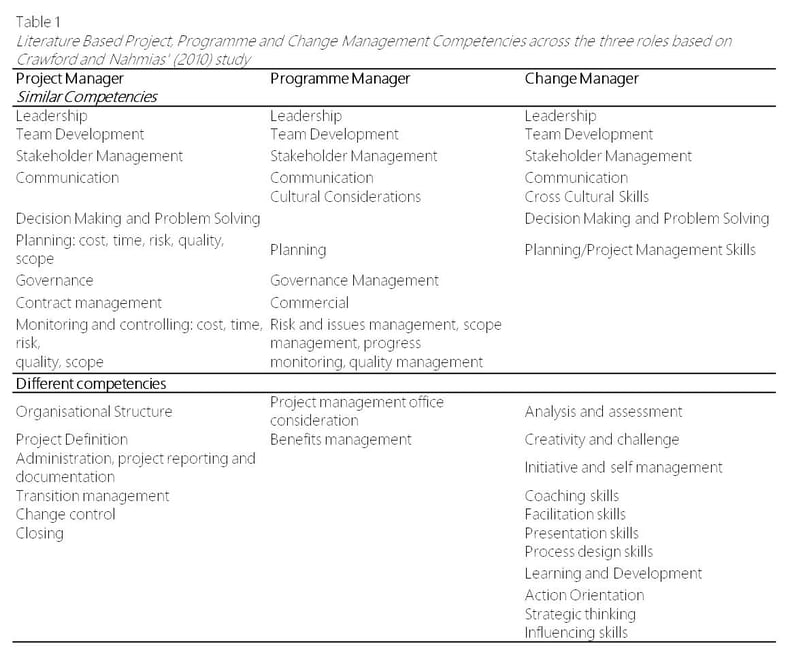
In our previous post, we highlighted the prevalent confusion about the roles played by change, project and programme managers. This blind spot is sometimes a result of a rivalry between Change Managers, Project Managers and several other contenders (e.g. Programme Managers, Senior Corporate Executives, Business Managers etc) for the management of business change at an organisational level. This rivalry does more harm than good to the overall success of delivering change outcomes. When multiple parties,
According to Prosci® 2016 Best Practices to Change Management benchmarking report, the greatest obstacles to success when applying change management are
- Lack of active and visible sponsorship
- Lack of change management resourcing
- Manager and supervisor resistance
- Employee resistance
- Lack of buy-in from project teams
If you understand how people work in companies with poor organisational culture, is it not clear how the rivalry between the various contenders (i.e. Change Managers, Project Managers, Programme Managers, Senior Executives, Business Managers) compounds to and complicates the obstacles above? What can we do to mitigate this?
The first step the organisation must take is to help the various managers understand how their competencies converge and differ so as to complement and support each other. In effective change management it is important for all participants to understand and stick to their role. For the purpose of this study, we have compiled a list of competencies in Table 1 below for Project, Programme and Change Managers based on the results of a robust and comprehensive study conducted by Crawford and Nahmias (2010).

After helping the different professionals understand how they could complement each other, the next is to set the standard practice of integrating project management and change management. This requires more work than what a blog can cover.
CMC Partnership provides Prosci® Delivering Project Results - a one-day, engaging and results-orientated workshop which is designed to explain how the two disciplines can come together. Participants will gain awareness of how change management can help them meet a Project’s intended outcomes.
Interested in finding out more? Access our brochure to learn more about the Prosci® Delivering Project Results workshop.
Keen to sign up?
The upcoming Prosci® Delivering Project Results workshops are to be held in London on 6th June or in Singapore on 3rd July. If you're interested in managing
*Having said that, the scene in the discipline of Change Management is changing rapidly as more professional associations and representatives seek to increase awareness and practice of Change Management and provide accreditation to professional Change Managers. For instance, the Association of Change Management Professionals® (ACMP®), which was launched in 2011, has recently established the Certified Change Management Professional™ (CCMP) Programme, requiring aspiring change managers to have attended formal training in a structured Change Management methodology, experience (measured in professional hours) in managing change projects, and taken a standardised examination before being recognised as a professionally accreditated Change Manager.
References
- Crawford, L. & Nahmias, A. H., 2010. Competencies for managing Change. International Journal of Project Management 28 (2010) 405–412
- Hughes, M., 2007. The tools and techniques of change management. Journal of Change Management 7 (1), 37–49.
- Vaill, P.B., 1989. Seven process frontiers for organisation development. In: Sikes, W., Drexler, A.B., Gant, J. (Eds.), The Emerging Practice of Organisation Development. NTL Institute and University Associates, La Jolla, CA.




